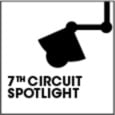Small Case, Big Reminder
I hope this column finds you healthy, safe, and connected to others. As we are into the second month of the so-called new normal of working remotely,…
April 27, 2020 at 09:10 AM
6 minute read
 Michael T. Brody, co-chair of Jenner & Block.
Michael T. Brody, co-chair of Jenner & Block.
I hope this column finds you healthy, safe, and connected to others.
 As we are into the second month of the so-called new normal of working remotely, communicating with family, colleagues, and clients through internet-based video conferences, and dealing with uncertain court schedules, we are all trying to figure out how the social distancing meshes with the business of the courts and our legal practices.
As we are into the second month of the so-called new normal of working remotely, communicating with family, colleagues, and clients through internet-based video conferences, and dealing with uncertain court schedules, we are all trying to figure out how the social distancing meshes with the business of the courts and our legal practices.
In the U.S. Court of Appeals for the Seventh Circuit, outward appearances are unchanged. The court has not cancelled or rescheduled arguments, and the clerk's office remains open. Yet, there are changes. The Seventh Circuit is hearing arguments by telephone. As before, the court will record the audio of its arguments and post the recordings on its website, but that is the only means of public access to arguments as the courtroom is closed. In-person mediations have been rescheduled as telephone conferences. Although the clerk's office remains open, it will no longer accept paper copies of most filings and has implemented its "Continuity of Operations Plan" by which court staff may perform their work duties remotely.
The outward appearance of judicial normalcy should not conceal the human costs of the COVID-19 virus. For many of our neighbors, colleagues and family members, things are far from normal. Some are sick and more are newly financially insecure. Schools are closed, businesses are shuttered, and people are out of work. The "new normal" is anything but normal.
One recent Seventh Circuit decision, although hardly noteworthy for its place in the development of the law, is good reminder of this difference between the outward appearance of a case and more troubling issues that sometimes lurk beneath the surface. Even a case that presents a simple legal issue that may be easily resolved without heavy lifting may implicate an important problem with far-reaching consequences. The outward appearance of a case may obscure the complexity of the problem and its human consequences. Appellate courts decide abstract issues of law, but their decisions, and the work of lawyers who appear in the courts, are profoundly human, as are the challenges that many of our colleagues and neighbors now face.
The case, Lord v. Beahm, 952 F.3d 902 (7th Cir. 2020), is an unremarkable prisoner's rights case. Plaintiff, Levi Lord, is an inmate in the Wisconsin prison system. After a prison guard told Lord that she would write him up for a disciplinary violation, Lord stated that he possessed a razor blade and intended to kill himself. Later, a guard went to his cell, ordered him out, and observed Lord had minor scratches treatable with a gauze bandage. Lord sued the prison guards under Section 1983, alleging they acted with deliberate indifference to the material risk to his life by not responding faster to his threat. The district court entered summary judgment for the Defendants, and the Seventh Circuit affirmed. Even considering the factual record in the matter most favorable to Lord, the Seventh Circuit concluded that Lord's threat was an insincere call for attention, and the prison's response was not a civil rights violation. The court did not appoint counsel for Lord and decided the case without oral argument. The court affirmed the district court because "Lord (thankfully) did not hurt himself and that reality leaves nothing for a jury to decide."
There are numerous similar civil rights actions brought and resolved in the federal district courts, and appealed to the Courts of Appeals in every circuit, every year. Many, like Lord's, are decided quickly and quietly as the wheels of the judicial process continue to turn. Despite the routine nature of this case, the Seventh Circuit decided the case in published opinion, and it appears to have done so to make an additional point about a serious issue that bubbled under the surface of Lord's case.
After resolving Lord's claim, the court explained "prison suicide is very real and very serious." The court cautioned not to read too much into its rejection of Lord's case. It explained that future cases involving threats of prison suicide "may entail a fact pattern nowhere near as straightforward" as Lord claimed. Citing statistics maintained by the U.S. Department of Justice, the court explained that the "reality" of prison suicide "is not hypothetical, for inmate suicide [is] on the rise in our nation's prisons." Those statistics showed suicide in state and federal prisons reached a 15-year high in 2016. The court cautioned that "it suffices to remind the Eighth Amendment prohibits prison officials from imposing wanton or unnecessary pain by ignoring an inmate who, whether because of major mental illness or some other serious mental need, goes beyond voicing an idle threat of suicide." The court affirmed because the Plaintiff fortunately fell on "the opposite side of the spectrum."
There is an important lesson in this case. Judges and lawyers can become callous to the human consequences of the cases they litigate or decide. While not every case presents a serious harm, and Lord's case fortunately did not, many cases do. Even in rejecting Lord's claim, the Seventh Circuit's decision reminds us of the humanity behind case names and pleadings and public officials and courts should not be complacent as to those consequences.
At this time, as always, many of our colleagues and neighbors are suffering. The veneer of normalcy that settles over our lives—even in this new "normal," which is anything but normal—makes it easy for us to ignore suffering unless it is right in front of us. The court's opinion—even in an objectively inconsequential case—is an important reminder of the importance of what we do, who we do it for, and all who support us in our professional lives.
Michael T. Brody is a partner at Jenner & Block. Brody serves as co-chair of the firm's appellate and Supreme Court practice and co-chair of its class action practice.
This content has been archived. It is available through our partners, LexisNexis® and Bloomberg Law.
To view this content, please continue to their sites.
Not a Lexis Subscriber?
Subscribe Now
Not a Bloomberg Law Subscriber?
Subscribe Now
NOT FOR REPRINT
© 2025 ALM Global, LLC, All Rights Reserved. Request academic re-use from www.copyright.com. All other uses, submit a request to [email protected]. For more information visit Asset & Logo Licensing.
You Might Like
View All
Apple Files Appeal to DC Circuit Aiming to Intervene in Google Search Monopoly Case
3 minute read

A Plan Is Brewing to Limit Big-Dollar Suits in Georgia—and Lawyers Have Mixed Feelings
10 minute read
Law Firms Mentioned
Trending Stories
- 1Uber Files RICO Suit Against Plaintiff-Side Firms Alleging Fraudulent Injury Claims
- 2The Law Firm Disrupted: Scrutinizing the Elephant More Than the Mouse
- 3Inherent Diminished Value Damages Unavailable to 3rd-Party Claimants, Court Says
- 4Pa. Defense Firm Sued by Client Over Ex-Eagles Player's $43.5M Med Mal Win
- 5Losses Mount at Morris Manning, but Departing Ex-Chair Stays Bullish About His Old Firm's Future
Who Got The Work
J. Brugh Lower of Gibbons has entered an appearance for industrial equipment supplier Devco Corporation in a pending trademark infringement lawsuit. The suit, accusing the defendant of selling knock-off Graco products, was filed Dec. 18 in New Jersey District Court by Rivkin Radler on behalf of Graco Inc. and Graco Minnesota. The case, assigned to U.S. District Judge Zahid N. Quraishi, is 3:24-cv-11294, Graco Inc. et al v. Devco Corporation.
Who Got The Work
Rebecca Maller-Stein and Kent A. Yalowitz of Arnold & Porter Kaye Scholer have entered their appearances for Hanaco Venture Capital and its executives, Lior Prosor and David Frankel, in a pending securities lawsuit. The action, filed on Dec. 24 in New York Southern District Court by Zell, Aron & Co. on behalf of Goldeneye Advisors, accuses the defendants of negligently and fraudulently managing the plaintiff's $1 million investment. The case, assigned to U.S. District Judge Vernon S. Broderick, is 1:24-cv-09918, Goldeneye Advisors, LLC v. Hanaco Venture Capital, Ltd. et al.
Who Got The Work
Attorneys from A&O Shearman has stepped in as defense counsel for Toronto-Dominion Bank and other defendants in a pending securities class action. The suit, filed Dec. 11 in New York Southern District Court by Bleichmar Fonti & Auld, accuses the defendants of concealing the bank's 'pervasive' deficiencies in regards to its compliance with the Bank Secrecy Act and the quality of its anti-money laundering controls. The case, assigned to U.S. District Judge Arun Subramanian, is 1:24-cv-09445, Gonzalez v. The Toronto-Dominion Bank et al.
Who Got The Work
Crown Castle International, a Pennsylvania company providing shared communications infrastructure, has turned to Luke D. Wolf of Gordon Rees Scully Mansukhani to fend off a pending breach-of-contract lawsuit. The court action, filed Nov. 25 in Michigan Eastern District Court by Hooper Hathaway PC on behalf of The Town Residences LLC, accuses Crown Castle of failing to transfer approximately $30,000 in utility payments from T-Mobile in breach of a roof-top lease and assignment agreement. The case, assigned to U.S. District Judge Susan K. Declercq, is 2:24-cv-13131, The Town Residences LLC v. T-Mobile US, Inc. et al.
Who Got The Work
Wilfred P. Coronato and Daniel M. Schwartz of McCarter & English have stepped in as defense counsel to Electrolux Home Products Inc. in a pending product liability lawsuit. The court action, filed Nov. 26 in New York Eastern District Court by Poulos Lopiccolo PC and Nagel Rice LLP on behalf of David Stern, alleges that the defendant's refrigerators’ drawers and shelving repeatedly break and fall apart within months after purchase. The case, assigned to U.S. District Judge Joan M. Azrack, is 2:24-cv-08204, Stern v. Electrolux Home Products, Inc.
Featured Firms
Law Offices of Gary Martin Hays & Associates, P.C.
(470) 294-1674
Law Offices of Mark E. Salomone
(857) 444-6468
Smith & Hassler
(713) 739-1250








